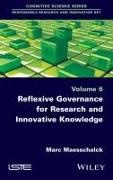Read more
List of contents
Foreword ix
Introduction xv
Chapter 1. RRI and Governance Theory 1 1.1. Definition of a minimum concept of governance 1
1.2. RRI and governance theory 6
1.2.1. The transition toward questions of governance in RRI policy 7
1.2.2. Introduction of explicit reflection on governance theory 10
1.2.3. Contributions of the GREAT project 14
1.2.4. Reasons for the delayed shift 17
1.3. The case of neighboring fields 21
1.4. Lessons to be learned 24
1.5. Changing perspective 28
Chapter 2. The Origins of Governance Theory 31 2.1. Old and new governance: a first shift 36
2.2. The neo-institutionalist hypothesis 40
2.3. The nodal governance approach 44
2.4. The move toward democratic experimentalism 49
2.5. Institutionalist change and reflexivity in governance theories 55
Chapter 3. Exploring Reflexive Governance Theory 57 3.1. Reflexivity and the academic third party 62
3.2. Reflexivity and the imaginary third party 67
3.3. Reflexivity and the real third party 69
3.4. The increase in references to reflexivity 72
3.5. Reasons why this use of reflexivity is unsatisfactory 76
3.6. What remains out of scope 79
Chapter 4. Key Strengths of a Reflexive Theory of Governance 85 4.1. Attention as "thematization" 86
4.2. Reflexivity in governance 91
4.3. Deconstructing governance narratives 94
4.4. Examples of post hoc thematization of relational decentering 98
4.5. Shortcomings of thematization 105
4.6. The five stages of reflexive governance in identity processes 109
Chapter 5. Promoting Reflexive Governance of RRI 117 5.1. Co-constructing problems 122
5.2. Transformation of relational structures and negotiability of roles 125
5.3. Iterating identities 128
5.4. RRIs pathway for reflexive governance 132
5.5. Operationalizing reflexive governance of RRI 137
Chapter 6. Intellectual Intervention in Society: The Key to Reflexive Governance of RRI 145 6.1. The destiny of rationality in the construction of common interest 148
6.2. The fragmentation of knowledge 156
6.3. Contradiction and pluralization of real interests 161
6.4. From intellectual intervention to the community of destiny 165
6.5. The possible role of political philosophy 170
6.6. Long and short cycles of RRI governance 172
6.7. A new model for the institution of knowledge? 175
Conclusion 179
Bibliography 185
Index 197
About the author
Marc Maesschalck, Professeur titulaire Université Catholique de Louvain, France.

